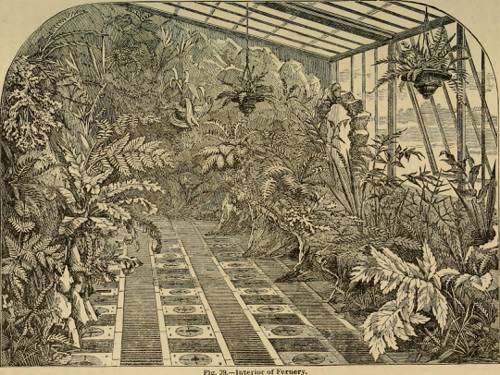
FAQ About Indoor Plant Alkalinity Balance

What is alkalinity in the context of indoor plants?
Alkalinity, in the context of indoor plants, refers to the level of carbonate and bicarbonate ions in the soil. It influences the soil's pH level, affecting nutrient availability for the plants. A balanced alkalinity ensures that nutrients like iron, manganese, and phosphorus are accessible to the plant roots.

How does soil alkalinity affect indoor plants?
Soil alkalinity affects indoor plants by influencing the pH level of the soil. High alkalinity often increases soil pH, which can lead to nutrient deficiencies. Plants may exhibit symptoms like yellow leaves or stunted growth if the pH is not suitable for their needs.

What pH level is considered alkaline for indoor plant soils?
A pH level above 7 is considered alkaline for indoor plant soils. Most indoor plants prefer slightly acidic to neutral pH levels, ranging from 5.5 to 7.5.

How can I test the alkalinity of my indoor plant's soil?
You can test the alkalinity of your indoor plant's soil using a soil pH test kit, available at garden centers. These kits typically include testing strips or a digital meter that provides a pH reading when inserted into the soil.

What are the signs that my indoor plant might be suffering from high alkalinity?
Signs that your indoor plant might be suffering from high alkalinity include yellowing leaves, poor growth, and leaf drop. These symptoms occur because high alkalinity can restrict nutrient uptake, particularly of iron and phosphorus.

How can I adjust the soil's alkalinity for indoor plants?
To adjust soil alkalinity, you can add acidic amendments such as sphagnum peat moss or elemental sulfur to decrease the pH. Applying an acidic fertilizer may also help adjust the alkalinity, improving nutrient availability to the plants.

Why is it important to maintain a balanced alkalinity for indoor plants?
Maintaining a balanced alkalinity is crucial for indoor plants as it ensures optimal nutrient uptake and overall plant health. Proper alkalinity allows for the absorption of vital nutrients, promoting healthy growth and strong resistance to disease.

Can water alkalinity affect indoor plant health?
Yes, water alkalinity can affect indoor plant health. Water with high alkalinity can raise the pH levels of soil over time, leading to nutrient deficiencies. It is important to use water with an appropriate pH or to adjust the water before use if necessary.

Are some indoor plants more tolerant of high alkalinity than others?
Yes, some indoor plants are more tolerant of high alkalinity. Succulents and cacti, for example, can often thrive in alkaline conditions compared to other plants that prefer more acidic soil.

What common household products can help decrease soil alkalinity?
Common household products like vinegar and lemon juice can be used to lower soil alkalinity temporarily. However, they should be used sparingly to avoid harming the plants. Always measure carefully and test pH after application.

Can fertilizers influence soil alkalinity for indoor plants?
Yes, fertilizers can influence soil alkalinity. Acidic fertilizers, such as those containing ammonium sulfate or sulfur-coated urea, can help lower soil pH and adjust alkalinity levels, promoting better nutrient availability.

What is the ideal alkalinity level for most indoor plants?
The ideal alkalinity level for most indoor plants falls within a pH range of 6 to 7. This range generally supports optimal nutrient uptake and healthy plant growth.

Can indoor plants help to naturally reduce soil alkalinity?
While indoor plants themselves don't reduce soil alkalinity, they can contribute to a natural cycle where healthy growth and organic matter breakdown over time may slightly acidify the soil. Regular maintenance and monitoring are still recommended.

What role does potting soil mix play in alkalinity balance for indoor plants?
Potting soil mix plays a vital role in alkalinity balance. A good-quality potting soil is often formulated to provide the right pH and nutrient balance, helping maintain optimal alkalinity for indoor plants.

How does changing pot locations in a home impact indoor plant alkalinity?
Changing pot locations in a home can impact plant health indirectly rather than alkalinity directly. Different environments can alter watering needs, heat exposure, and humidity levels, which might require adjustments in care and monitoring of soil conditions.

Is rainwater better for maintaining soil alkalinity balance than tap water?
Rainwater generally promotes a better soil alkalinity balance compared to tap water, as it tends to have a neutral to slightly acidic pH. In contrast, tap water often has higher alkalinity and can increase soil pH over time.

Do indoor plants require different alkalinity adjustments in winter?
Yes, indoor plants might require different alkalinity adjustments in winter due to changes in light, temperature, and humidity. Reduced growth rates can also alter nutrient needs, so monitoring soil conditions is essential year-round.

What are the long-term effects of consistently high alkalinity on indoor plants?
Consistently high alkalinity can lead to chronic nutrient deficiencies, stunted growth, and increased susceptibility to disease over time. It can significantly weaken plants, reducing their longevity and ability to thrive.

How often should I check the soil alkalinity for my indoor plants?
You should check the soil alkalinity periodically, especially when symptoms of nutrient deficiency appear or if there are changes in water sources. For most plants, checking every few months or seasonally is sufficient.

Can I use aquarium water to help manage alkalinity in indoor plants?
Aquarium water can sometimes be beneficial for indoor plants as it contains nitrates and nutrients. However, the alkalinity of aquarium water can vary, so testing and monitoring are recommended before use.
